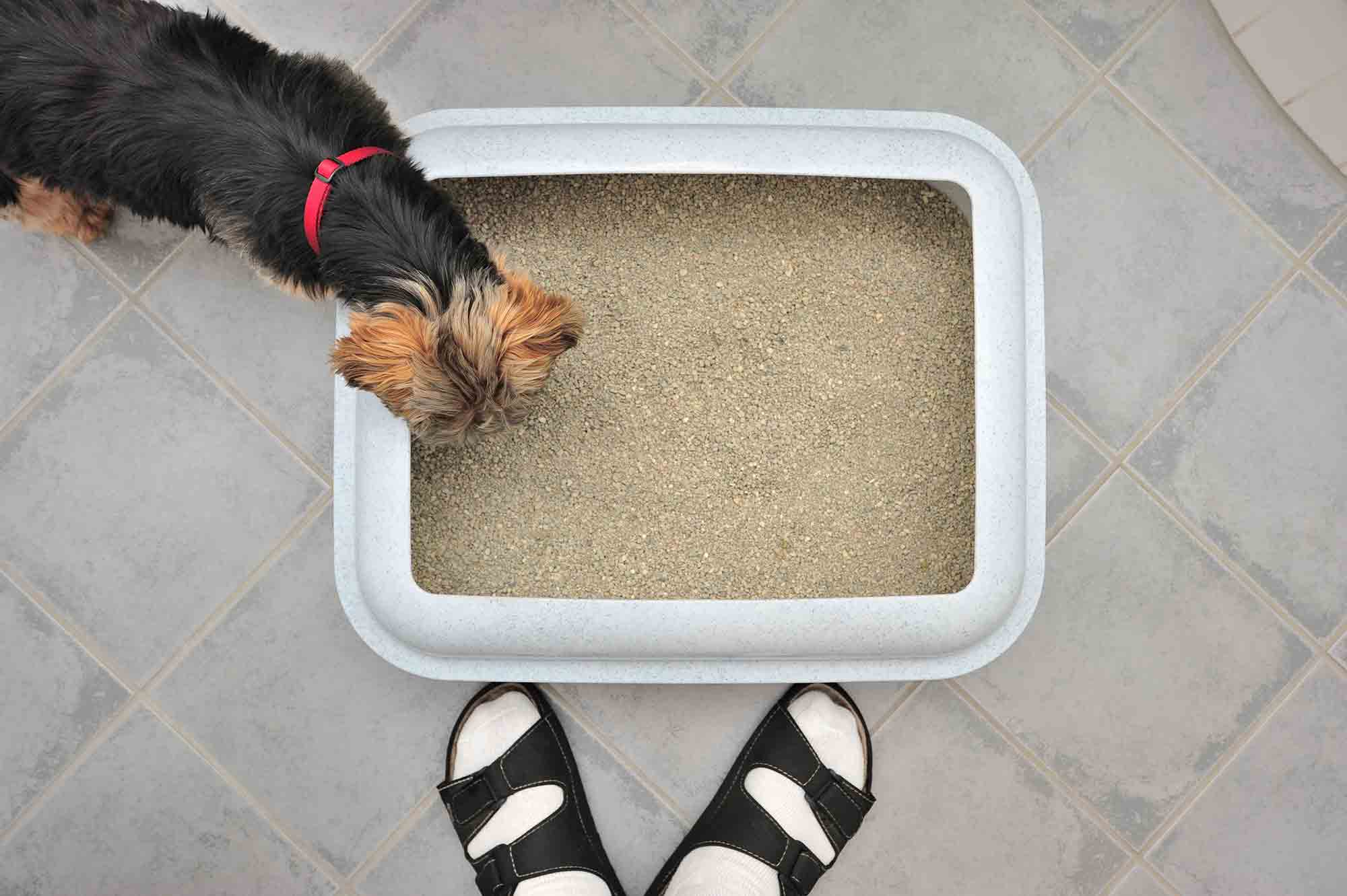Why do Dogs Eat Cat Poop?
 There are few things grosser than finding out that dogs eat cat poop. Although we can’t believe they do it and don’t understand the allure, dogs sure seem to enjoy it, no matter how much we protest.
There are few things grosser than finding out that dogs eat cat poop. Although we can’t believe they do it and don’t understand the allure, dogs sure seem to enjoy it, no matter how much we protest.
It turns out this disgusting habit is a result of natural dog behavior. At Rocklin Ranch Veterinary Hospital, we explore the reasons behind this tendency and what owners can do about it.
The Reasons Dogs Eat Cat Poop
Dogs are scavengers and omnivores; the sad truth is, dogs eat cat poop because it’s there and they can. It doesn’t indicate a nutritional deficiency, and it’s not a behavior problem they can be trained out of (unfortunately).
Dogs in the wild, stray dogs, or rural-living dogs will eat anything and everything to survive. Your city dwelling dog has this natural tendency as well, even though they’re well fed. You probably know dogs will eat anything, including carpet, socks, rocks, and everything in between. We’ve seen evidence of all these things on x-ray images at our hospital!
The scientific term for poop eating is coprophagia. It might start in puppyhood, but most of the time, the habit begins when dogs first discover the litter box has tasty treats inside. After that initial taste, the behavior is reinforced every time they get a snack from there.
Is Cat Poop Bad for Dogs?
It’s common for dogs to eat cat poop, and most of the time, they’re fine. Aside from mild gastrointestinal upset, many dogs have no problems at all. However, there is some risk of your dog contracting harmful bacteria or parasites from cat poop. To make matters worse, some of the bacteria, like salmonella, can be transmitted to people. It could also be harmful if your dog ingests a large amount of litter, but all of these risks are relatively minimal. If your dog routinely raids the litter box and has diarrhea or is constipated or if you’re concerned about their health, please give us a call.
Prevention
So how can you prevent this disgusting behavior? Well, once the habit is established, it’s nearly impossible to break. Scooping the box immediately after your kitty uses it also isn’t realistic. Instead, prevention is the best medicine. Here are some tips and ideas:
- Place the litter box high off the ground where your dog can’t reach. This is especially helpful for homes with small dogs and kitties who are allowed to jump up on a shelf or cabinet.
- Invest in a covered box or dog proof litter box.
- Cut off the top ⅓ of a storage bin. This gives your kitty a landing pad but also prevents your dog from reaching in due to how deep it is.
- Place the litter box in a room with a cat door that’s too small for your dog to access.
- Use a baby gate positioned above the floor so your cats can get underneath but your dog can’t.
Hopefully, you have some new ideas and information about coprophagia. Although disgusting, it doesn’t necessarily mean something is wrong with your dog.
Please give us a call if you’re concerned about this with your dog or if you have any questions. We’re happy to help!

